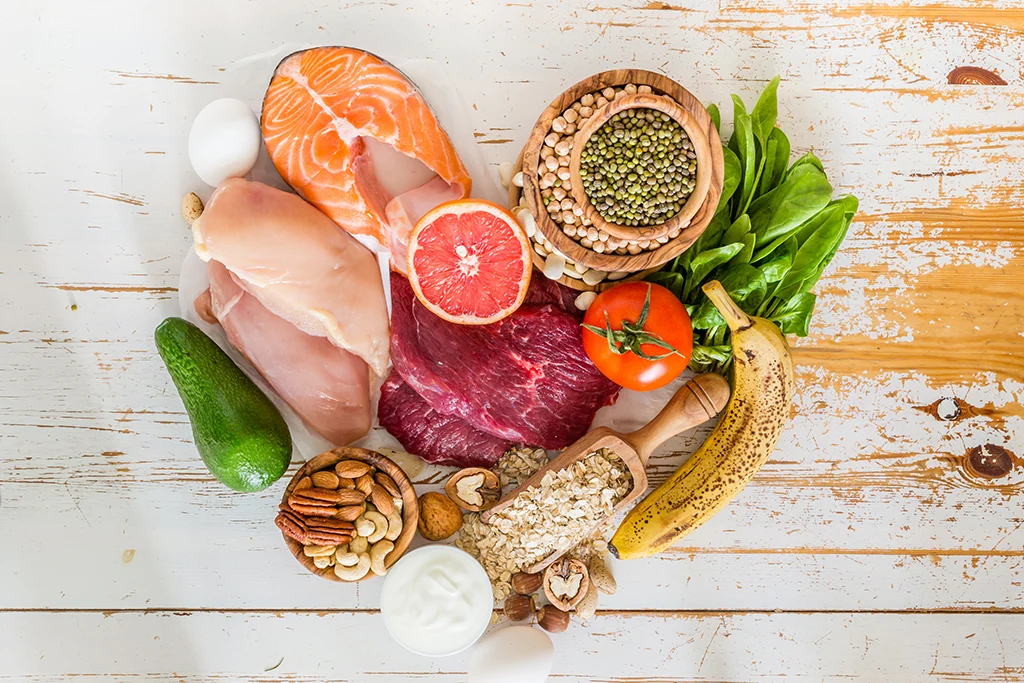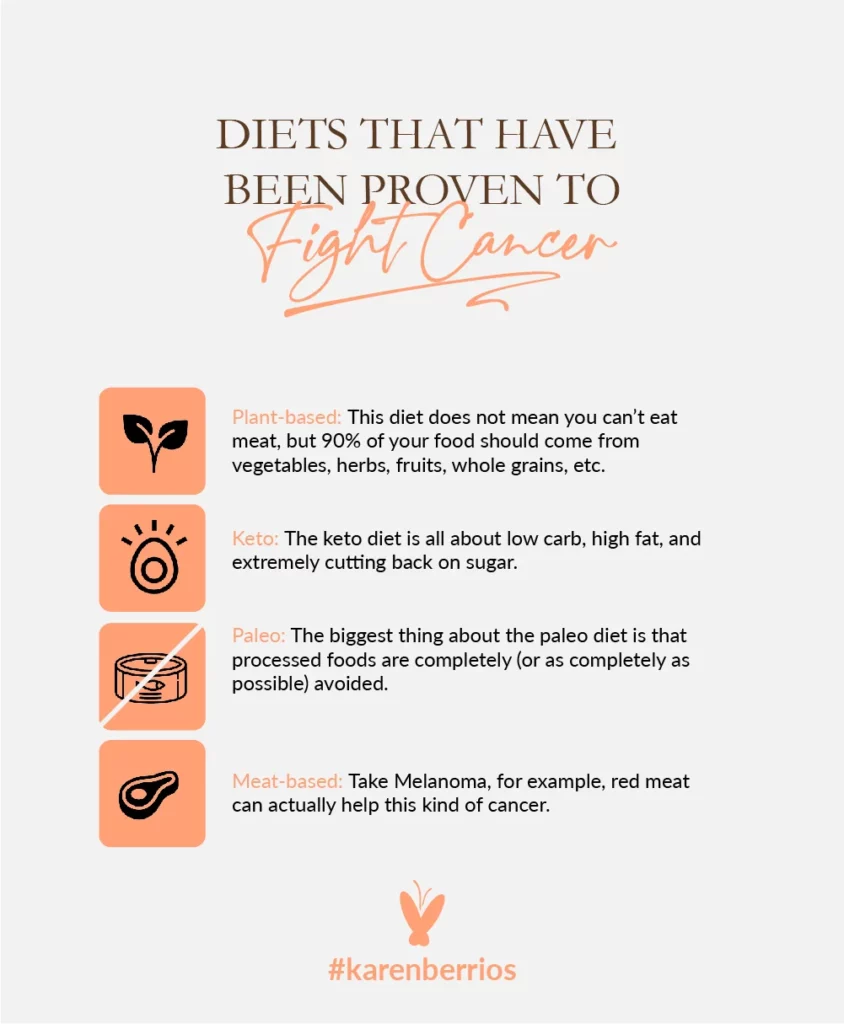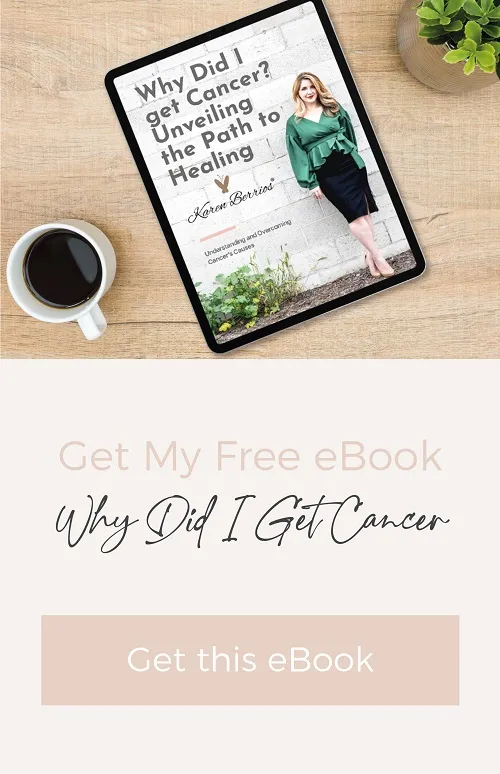

What Diet Has Been Proven to Fight Cancer?
Fight Cancer. Food matters.
I have said this so many times. It is the biggest piece of the puzzle with cancer. It simply cannot be ignored. The food that we eat can either heal us or harm us. I firmly believe we have all the building blocks we need to heal our cells or build new ones– and we have that on our plate.
When my diagnosis happened in 2014, I was crushed. I was in dire need of answers. It became my mission to heal and to also learn why I ended up where I ended up in the first place.
I came to learn that cancer is multifactorial; an accumulation of things, he toxins in our lives, people sucking our energy, not breathing properly for decades on end, exposure to EMFS, our food…
Yes, our food. That is the biggest one. Actually, that’s the one that hurts the most because it is up to us what we put in our mouths, and that is something we have always had control over. It’s both a good thing and bad- bad because it hurts to know the food that we have been eating could have been a cause in our cancer, and good because we have the ability to change our patterns NOW.
In this article we are going to explore food choices and diet because I believe it is something you should master before anything else.
I will share what I believe is the best diet proven to fight cancer, but I will also provide research that might even go against what I say. I am all about being objective and bringing to the light the information out there.
I also believe there is not a one size fits all diet. We are all genetically different. We are all dealing with different environmental factors. There are many kinds of cancer and chronic disease.
What works for one person may not work for another. However, I want you to put on your critical thinking cap here. I want you to put on your intuitive armor. If there is ever a time to do this, it is now.
Cancer does not wait. Begin healing now. Ask questions. Research everything. Listen closely to what “clicks” for you. That is what I did and it lead me down the right path. I never once let ANYONE tell me exactly what to do. I always sought different opinions. We’ll get into what I chose (it’s still how I eat this day) but I want you to think objectively with everything I mention.
There are many kinds of diets– which is proven to fight cancer?
Does a plant-based diet fight cancer?
To be upfront, this is what I personally ended up deciding upon. A plant-based diet felt so right to me.
There is over two decades of proven research that a plant-based diet can fight cancer, and also prevent it.
This diet does not mean you can’t eat meat (although many experts who are for this diet say you should completely avoid it during this time) but it does mean that over 90% of your food comes from vegetables, herbs, fruits, whole grains, etc.
There are many reasons a plant-based diet works for fighting cancer.
It supports your immune system: Supporting your immune system is the biggest thing you need to do when it comes to cancer.
The reason why plants are so powerful is that they have essential nutrients that the body simply can NOT get from other foods. Meaning dairy, meat, etc… not going to cut it. The phytochemicals, minerals, vitamins and antioxidants you will get from plants are going to keep your cells healthy. Cancer is cellular- it all starts on a cellular level! These nutrients help keep your body in balance and this allows your immune system to do its thing! To protect!
Plants also help your body fight off infection. It helps fight off germs and other unwanted microorganisms. That is why a strong immune system is key in fighting cancer because it can recognize and attack mutations in cells.
Phytochemicals reduce inflammation: Inflammation is the root of cancer. Plant vitamins, minerals, antioxidants… we can call these phytochemicals, and these phytochemicals help to keep inflammation at bay and even go after existing inflammation. The phytochemicals go around our bodies and neutralize toxins that can be toxins from anywhere: processed food, pollution, bacteria, viruses, EMFs, etc. Getting after these toxins is what is going to help you fight cancer as it is these very toxins that are fueling it (whether totally or partially.)
These phytochemicals, especially the antioxidants, go after free radicals. Free radicals throw the body off balance. When the body is off balance, the immune system doesn’t work as well and inflammation can occur. We want plants going after free radicals!
I have stated before, prolonged inflammation (which we often see in a high sugar diet) will damage the body’s cells and tissues. This can cause cancer and other diseases.
Plants can help put a stop to the trigger of inflammation.
It helps you increase your fiber intake: Fiber is beneficial for total body health, mainly the gut- where the majority of your immune system lives. The beautiful thing about fiber is that it lives in plants. So eating plants = eating fiber. Fiber makes up the structure of a plant.
A plant based diet oftens improves one’s gut health. The gut is connected to everything! Nervous system, the brain, the liver, your immune system! To ignore it would be critically wrong for healing and fighting cancer.
Fiber helps the gut, it helps digestion, it helps feed healthy bacteria. When your gut works well, you can better absorb all the nutrients from food that your immune system needs to reduce inflammation. Better working immune system = lowering inflammation = fighting cancer.
Fiber can also help lower cholesterol and keep your blood sugar levels balanced and happy. This is also needed for a healthy gut.
Fiber is extremely important for fighting cancer. And it is especially important for preventing and treating the third most common form of cancer: colorectal cancer.
It clinically has been proven to lower your cancer risk. Research matters, and the studies behind a plant-based lifestyle are strong.
Take for instance, this study that shows us that fruits, vegetables, and plant-derived beverages such as green tea, and cacao-based products are the main dietary sources of flavonoids. Flavonoids have been shown to possess a wide variety of anticancer effects: they modulate reactive oxygen species (ROS)-scavenging enzyme activities, participate in arresting the cell cycle, induce apoptosis, autophagy, and suppress cancer cell proliferation and invasiveness.
According to an article written by The Rogel Cancer Center, consuming plant-based foods, which include valuable vitamins, minerals, phytochemicals, and fiber (as we just talked about!) have been shown to reduce the risk of several types of cancer.
Before we explore other diets, I will say this: No matter the diet you land on, eat more plants.
The keto diet and fighting cancer
The keto diet is all about low carb, high fat, and extremely cutting back on sugar.
We MUST know this: reducing our sugar intake can help starve cancer. This is a big part that keto gets right. If preventing cancer, or treating it is the goal– lowering our sugar intake ought to be an action taken.
Dr. Axe, one of the top holistic doctors in the world, is a huge advocate for the keto diet when it comes to cancer. His big takeaway is how it’s no mistake that many of the foods on the ketogenic diet are known as “cancer healing foods.” He states: “There are several medical studies — such as two conducted by the Department of Radiation Oncology at the Holden Comprehensive Cancer Center for the University of Iowa, and the National Institutes of Health’s National Institute of Neurological Disorders and Stroke, for example — that show the ketogenic diet is an effective treatment for cancer and other serious health problems.” (See that study here).
Getting rid of refined sugar and highly processed carbohydrates may be effective in reducing or fighting cancer.
But something we need to note is that oftentimes the ketogenic diet is a huge proponent of filling the majority of your plate with meat and dairy. Unfortunately, the majority of people who utilize this diet are not paying the big bucks to only eat pasture raised, hormone-free meat. Majority of them are eating processed meat.
Processed meat manufactures add nitrates and nitrites, a food additive used to stop the growth of bacteria and to enhance the flavor and color of foods. These are usually added to beef, poultry, fish, deli meat, ham, bacon, sausages, hot dogs, etc. These compounds also give processed meats their pink color. Both nitrates and nitrites can form nitrosamines in the body, which can increase your risk of developing cancer. A study suggests that high consumption of processed meat may increase the risk of stomach cancer. Dietary nitrosamines might be responsible for the positive association.
It needs to be said that anything that can cause cancer, is not going to help you FIGHT cancer. The two are not mutually exclusive.
And dairy has its own set of problems. The ketogenic diet is big on dairy because it is high fat and low carb. Dairy often contains disrupting hormones like estrogen and progesterone- an increase in either of these can harm the immune system. Anything that harms the immune system is not helping you fight cancer. Naturally caring for your hormones is important, tied to the immune system, and starts with what you eat! Dairy is not the best for hormones.
In an effort to remain objective, I will say that there was a study done in July 2018 by Weill Cornell Medicine and Columbia University that concluded that a ketogenic diet could help cancer medicine act more effectively in the body. It was a study performed in mice and was in relation to insulin and sugar intake and certain PI3K inhibitors.
PI3K, in the medical community, is believed to be a huge therapeutic target for cancer treatment. This is based on studies that show that hyperactivity of PI3K signaling correlates to human tumor progression and the invasive potential of cancer cells. [Source]

The paleo diet and fighting cancer
The paleo diet is interesting because it can lean more plant-based, and it can lean more keto based. It can also be a blend of the two. The biggest thing about the paleo diet is that processed foods are completely (or as completely as possible) avoided.
Pros of the paleo diet:
1. High in fiber. As we said in the plant-based section, fiber is incredibly important for the gut which is incredibly important for the immune system. This is only a benefit of the paleo diet if you are eating enough plants, because again- you will not get fiber from meat and dairy! And you will not get fiber from eggs. Oftentimes, a lot of people later in life learn that processed foods are wreaking havoc on their immune systems. Once they begin a diet full of fiber, which you CAN get from a paleo diet, they begin to do better.
2. The paleo diet places importance on something called the Omega 3:6 ratio. Studies do show us that populations who have imbalances of Omega 3 to Omega 6 intake do have an increased risk of cancer. Omega 3 intake can be protective, whereas Omega 6 intake (when off balance) can be cancer promoting. One big place that people overdo it with Omega 6s are their vegetable oils: think sunflower, canola, and palm oil. We want oils that are protective for our bodies.
3. The paleo diet places a premium on low sugar. Like the keto diet, the paleo diet is all about keeping blood sugar stabilized and keeping our white sugar intake low. There are multiple studies that have shown us that there is a relationship between glucose (sugar) and cancer. Diets that are too high in refined carbohydrates have been shown to have some links to certain cancers. Especially endometrial, colorectal, and ovarian cancer. The theory in these studies is not conclusive, but certainly something to look at. One could say that plant-based diets need to be wary of too high of carbohydrates. Paleo does strike to find a balance.
Cons of the paleo diet:
The biggest red flag of the paleo diet is having too much red meat. There was a recent study done with over 42,000 women and it looked at meat consumption and breast cancer. The finding was that red meat increased the risk of breast cancer, and it’s possible that poultry could help decrease the risk. Here’s an interesting excerpt from the study:
“During follow-up, 1,536 invasive breast cancers were diagnosed. Increasing consumption of red meat was associated with increased risk of invasive breast cancer: women who consumed the highest amount of red meat had a 23% higher risk compared with women who consumed the lowest amount. Conversely, increasing consumption of poultry was associated with decreased invasive breast cancer risk: women with the highest consumption had a 15% lower risk than those with the lowest consumption. Breast cancer was reduced even further for women who substituted poultry for meat.”
I put this out there because it’s good to know what studies are being done, however, no study is perfect! This study doesn’t say how much chicken was eaten, and were these people primarily plant-based? Did this group also get more sleep, and eliminate toxins from their diet, etc.
A Meat Heavy Diet for fighting cancer
There are really only rare instances I have ever seen that promote red meat for fighting cancer. Again, even though I lean plant-based, I want to be objective here.
There are some cancers where experts claim a red meat-based diet is actually what is best. Take Melanoma, for example, red meat can actually help this kind of cancer.
Famed Cancer Doctor and crusader, Dr. Nick Gonzalez, said this about the diet for someone with melanoma (skin cancer.) “For our melanoma patients, we always prescribe a diet that emphasizes red meat, with the fat, preferably more than once a day. We forbid certain commonly enjoyed vegetables, such as leafy greens, and allow fruit only once a day, and never citrus.”
The Leukemia and Lymphoma society, when they have patients with Melanoma, advocate for them going on a protein-rich diet, and this includes lean meats. Again, not processed meats but lean meats with no hormones or antibiotics added. What’s interesting is they don’t mention using many vegetables or fruits to heal. It’s all dairy, meat, and grains!
Final thoughts
I do think that 99% of the time– adding plants to your diet is going to be a tool in fighting cancer. I know I was a BIG time meat eater when I was diagnosed with cancer. I had it nearly every day.
I also had a massive sweet tooth.
When I ditched the white sugar and focused on natural sugars and when I went completely plant-based (amongst other therapies) I was able to heal my cancer.
You need to be intuitive. You need to examine your diet- what has it been like most of your life? How do you feel after each meal? Is there something you are learning today that sounds like it can positively impact your life? Think about these things.
But if anything, please know that diet completely affects cancer and WILL play a role in your healing and also preventing it from coming back down the line.

hey there
I'm Karen!
I have found my cancer journey to be a positive and profound transformational experience. I’m inspired to share my healing journey here, and trust you’ll find hope, encouragement and purpose as you discover the healing power that lies within you.
Join
The Mailing List!
By signing up for my newsletter, you agree with our Privacy Policy and Terms & Conditions.


